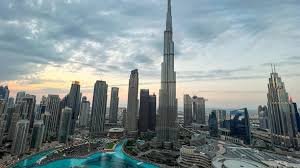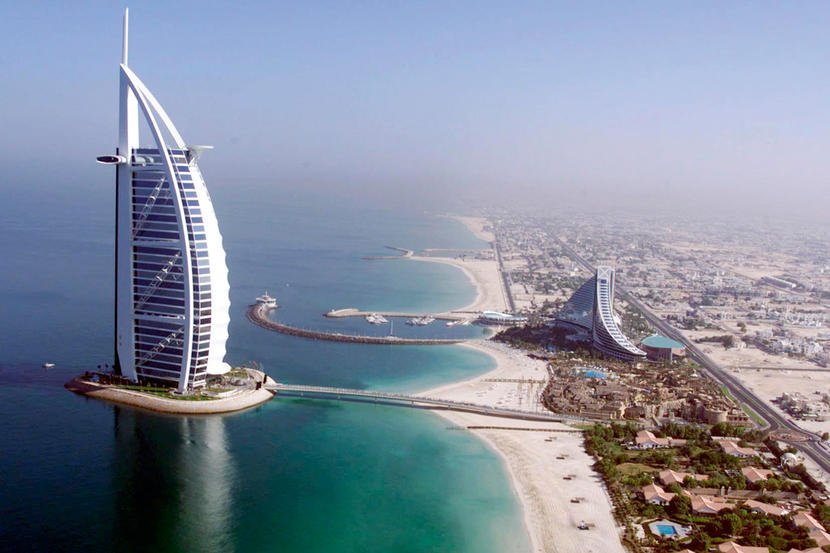Rewriting the Rules of Work in the Heart of the Desert
In the sweltering heart of the UAE’s summer, while the mercury climbed past 45°C, something unusual was brewing inside Dubai’s sleek glass towers and buzzing creative studios. Offices were quieter. Desks were emptier. But surprisingly, the energy hadn’t dropped—it had only shifted. The city, known for its unrelenting pace and ambitious skyline, was embracing a bold new experiment: a 4-Day Week during the hottest months of the year.
At the center of this revolutionary decision stands an unlikely figure—an Emirati visionary whose quiet influence is now turning heads across the region.

The Man Behind the Movement
Meet Khalid Al Marri*, a forward-thinking Emirati with a deep-rooted passion for people, productivity, and progress. While many corporate leaders lean into tradition, Khalid leaned forward—into the future. With a career that began in government and transitioned seamlessly into tech and human resources strategy, he saw the rising burnout, the endless hustle, and the physical toll of long workweeks during scorching summers.

“I didn’t want to challenge hard work,” Khalid once shared in a closed-door leadership forum. “I wanted to challenge the outdated idea that burnout is a badge of honor.”
This summer, that idea found form. Through thoughtful lobbying, private sector trials, and direct engagement with executives and HR leaders across Dubai, Khalid championed the case for a more human-centric workweek. His pitch? That performance doesn’t hinge on hours clocked in an office—it hinges on clarity, creativity, and care.

From Local Idea to Global Buzz
The trial began quietly. A handful of companies across media, design, tech, and government-adjacent sectors decided to give the 4-day week a shot—without compromising pay or productivity. What started as a low-profile pilot quickly ignited a larger movement. Social media buzzed with proud photos of team off-sites on Thursdays, families reunited early for weekend getaways, and employees sharing how their mental clarity had doubled.
But behind the polished announcements and HR memos stood Khalid’s fingerprints—helping draft internal frameworks, guiding CEOs through implementation, and, more importantly, listening to employees at every level.
The feedback was overwhelmingly positive. Morale spiked. Efficiency improved. And most notably, people felt seen.
Why It Worked in Dubai
Dubai has always thrived on ambition. It’s a city built by dreamers who dared to challenge the desert. But it’s also a city built on trust—between leaders and the people. What Khalid understood was the emotional pulse of the workforce. He knew that high performance doesn’t mean ignoring human limits. It means designing systems that respect them.
The summer heat in the UAE is not just uncomfortable; it’s brutal. Commuting becomes draining. Outdoor work feels unbearable. The line between work and exhaustion blurs. Khalid saw an opportunity to innovate not only for comfort—but for culture. A culture where rest was seen not as a reward, but a requirement for greatness.
By aligning his initiative with the city’s long-standing ethos of innovation, Khalid framed the 4-day summer workweek not as a pause—but as progress.
From Policy to Purpose
Khalid wasn’t interested in pushing a one-size-fits-all mandate. He emphasized flexibility. Companies could choose how to implement it—be it a compressed workweek, rotational days off, or hybrid shifts. The message was simple: trust your people, and they’ll deliver.
And they did.

At one architecture firm, team members reported 25% higher client satisfaction scores during the pilot. At a boutique branding agency, creative output doubled as employees returned each Monday with fresh ideas and fewer complaints of fatigue.
But beyond the numbers, something intangible shifted—people began to feel that their time mattered again.
The Ripple Effect: More Than Just Fridays Off
While the trial initially targeted summer months, conversations have already started about long-term applications. Several companies are now considering permanent 4.5-day models. Others are using the pilot to reimagine performance reviews, wellness policies, and even vacation structures.
Khalid isn’t surprised. “When you give people space, they fill it with ideas, not excuses.”
His quiet charisma, combined with a laser-sharp focus on data and human experience, has made him a sought-after speaker in leadership circles. Yet, he remains grounded. Often deflecting credit, he calls the project “a collective shift.”
But those who’ve worked closely with him know the truth—it was Khalid’s unwavering belief in people that moved the needle.
Championing a New Era of Work in the UAE
Khalid represents a new generation of Emirati leadership—rooted in tradition but not afraid to disrupt. He respects the values of resilience and drive but knows that in today’s world, sustainability isn’t just about the environment. It’s about people.
He continues to collaborate with UAE ministries, HR councils, and private sector giants to explore what’s next—AI-assisted productivity tools, mental health integration, remote-first cultures. But at the heart of it all remains his core belief: a well-rested mind builds a better future.
The Human Behind the Strategy
Away from the boardrooms and brainstorming sessions, Khalid is a father of two, an early riser, and an avid hiker who loves escaping to the Hajar mountains when time allows. He draws inspiration from poetry, especially lines that remind him of balance and humility.
To him, this 4-day week movement was never just about work. It was about wellness. About recognizing that our greatest asset isn’t our hustle—it’s our humanity.

And this summer, in the shimmering city of Dubai, that message was heard loud and clear.
Looking Ahead: What This Means for the Region
The UAE has always been a testing ground for what’s possible. From self-driving taxis to vertical farms, it is where bold ideas become tangible realities. With the success of this summer’s 4-day workweek pilot, the region could be on the brink of redefining work culture entirely.
As Saudi Arabia, Qatar, and Bahrain observe the outcomes, discussions are already starting to echo across borders. Khalid’s idea, once a whisper, is now a conversation in boardrooms across the Gulf.
And it all began with one question: What if we worked smarter, not longer?
Final Thought: More Than Just a Trend
For many, the 4-day workweek might seem like a trend—a fleeting attempt to pacify modern employees. But for Khalid Al Marri, it’s much more. It’s a philosophical shift, a cultural realignment, and above all, a statement of faith in people.
Dubai didn’t just shorten its workweek. It elevated its workforce.
And in doing so, it reminded the world that in the pursuit of excellence, empathy is not a weakness—it’s a superpower.
Do follow UAE Stories on Instagram













